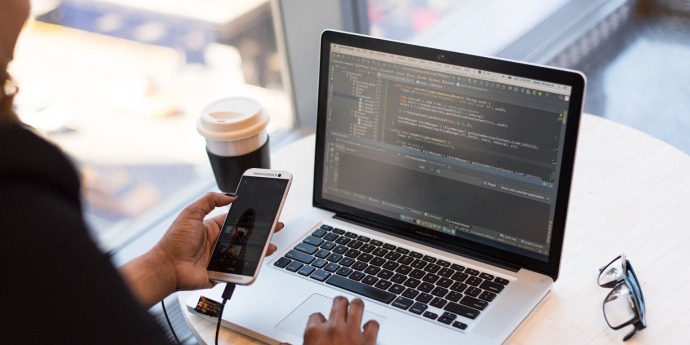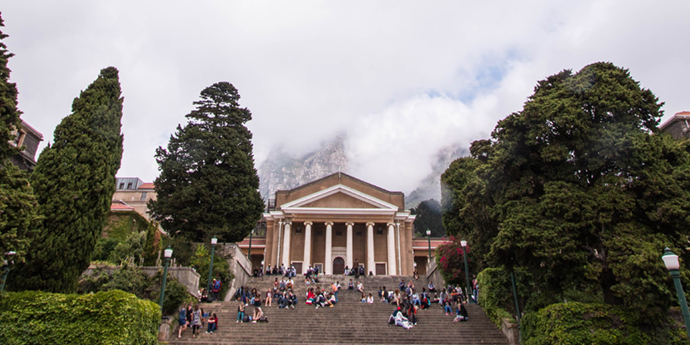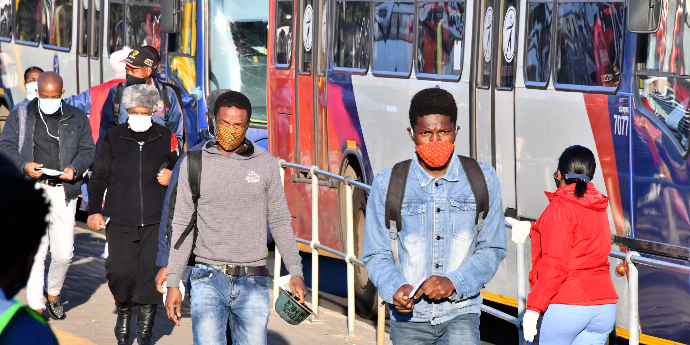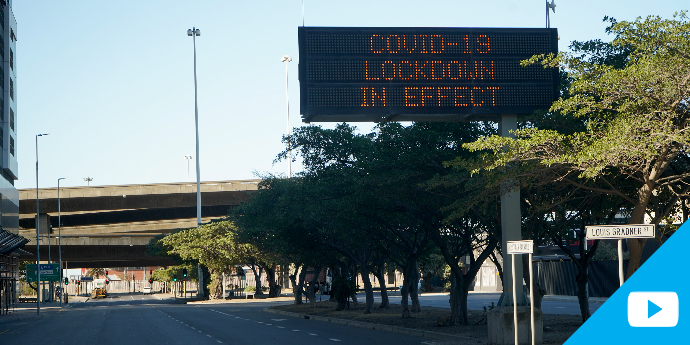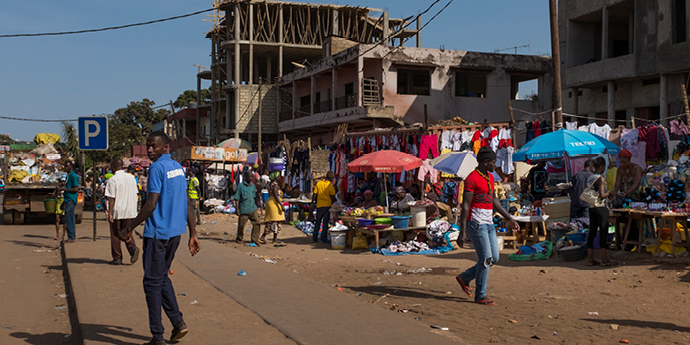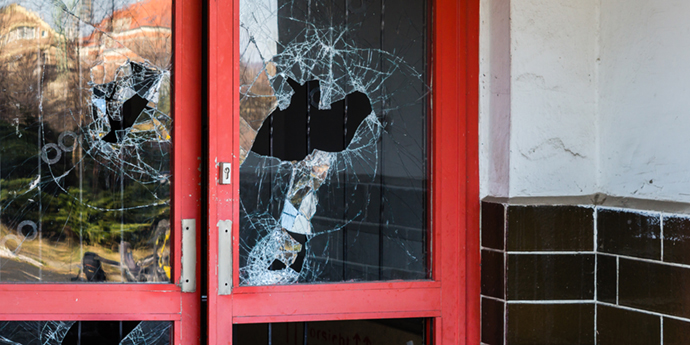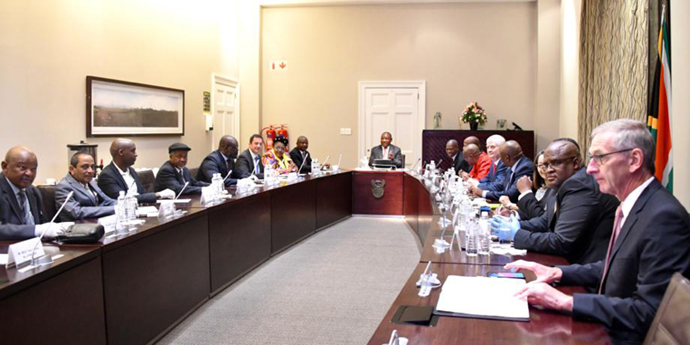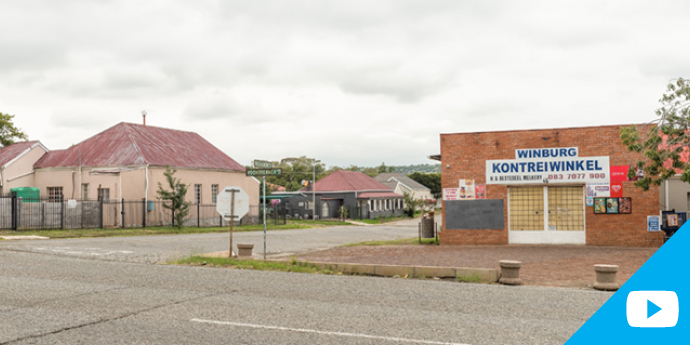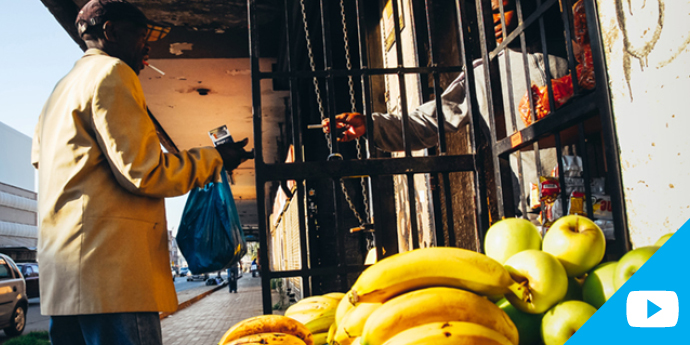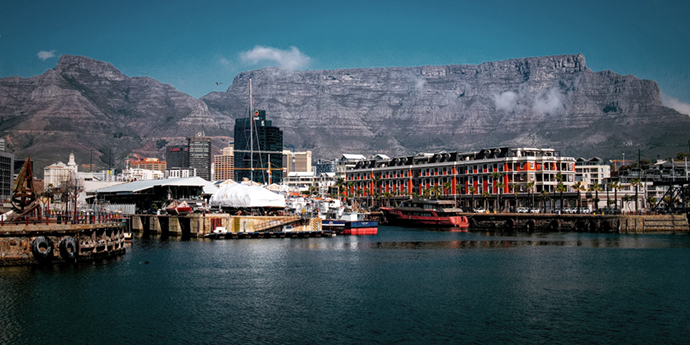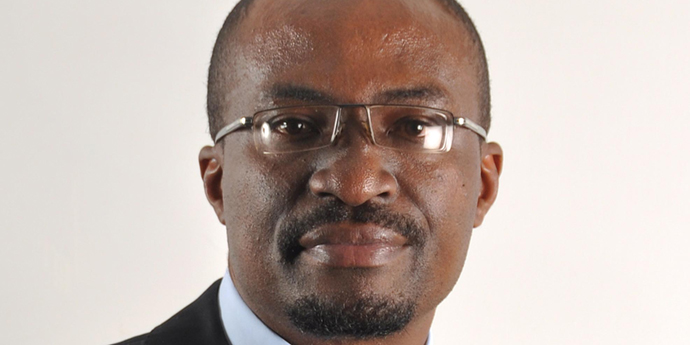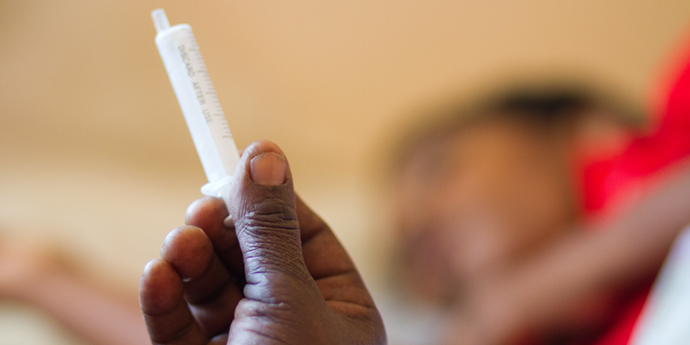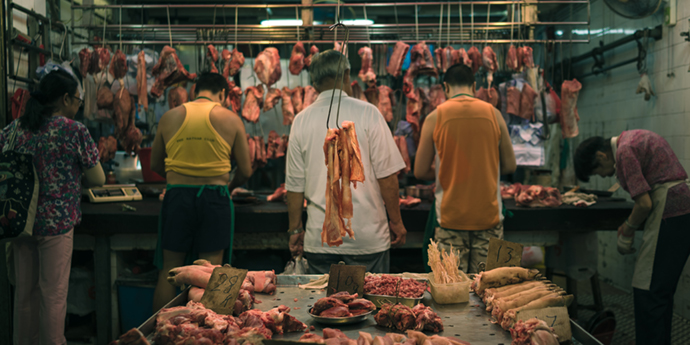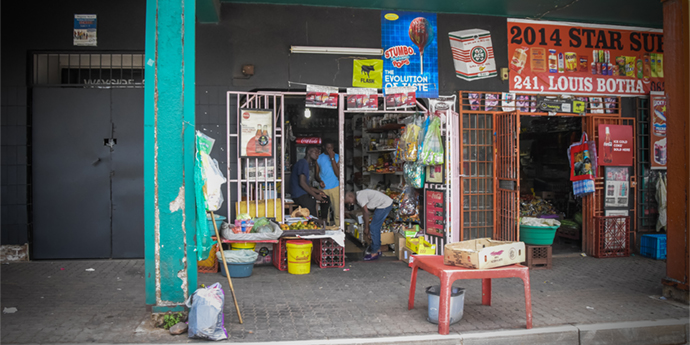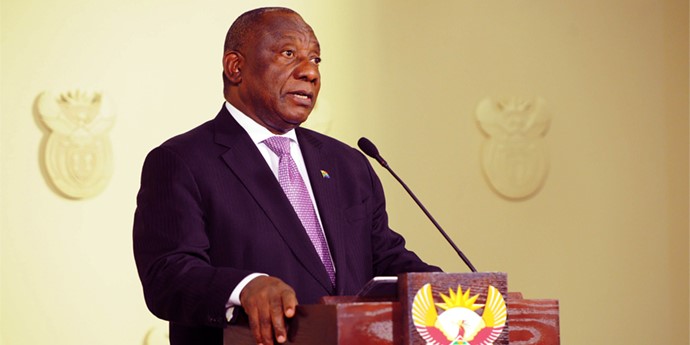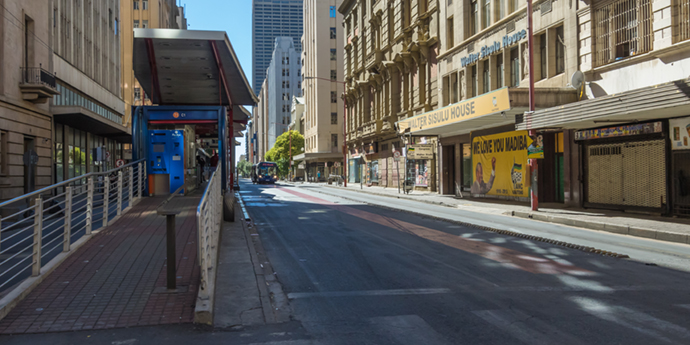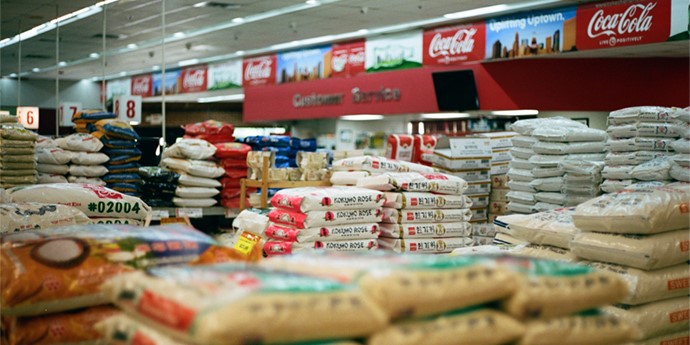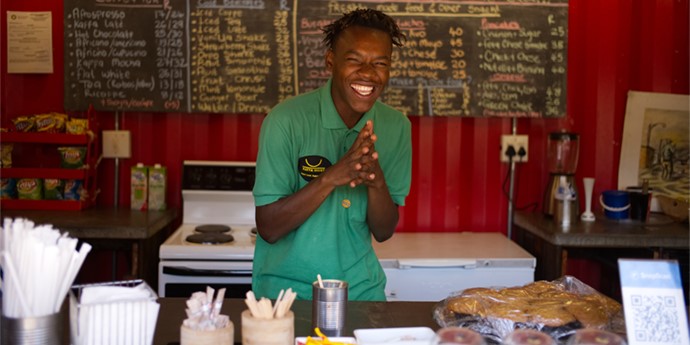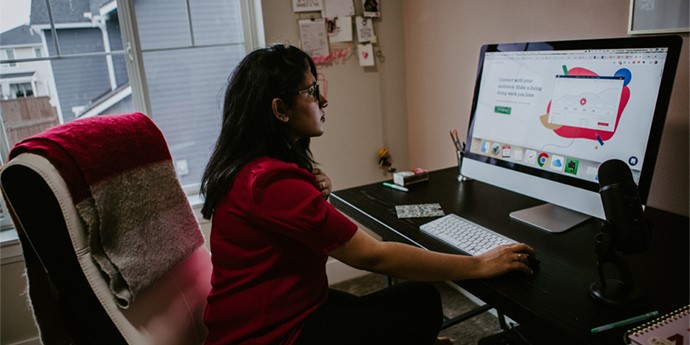The Covid-19 pandemic has changed the world: It may take years for the global economy to recover, which will have dire implications for South Africa’s economic prospects. The impending global depression and our weak state means most South Africans will find the coming months extremely difficult to manage.
by Sean Gossel and Thomas Koelble
With the UN calling Covid-19 the worst crisis humanity has faced since World War II, it is trite to say that the pandemic has changed the world as we know it. However, South Africa finds itself in a particularly difficult position as a result of two decades of ANC misrule and poor policy choices. Even before the Covid-19 pandemic bloomed, the country was on the brink of a financial crisis; but now, after a shutdown and a downgrade, there are no longer any delusions — South Africa has tipped.
How hard the landing will be will depend on the hard choices of domestic and international policymakers. There are, however, some trends emerging that give us a glimpse of what the country and the world could be like after the pandemic recedes.
The world
The capitalist world is facing three intertwined crises: A pandemic-induced health crisis, which has set off a financial-economic crisis, amid a climate crisis. During the month of March, global markets lost near $8-trillion (the worst performers were Argentina and South Africa — the S&P South Africa Composite was 41.1% down from its 2020 peak at the end of February). A World Economic Forum report indicates that the Chinese economy has seen double-digit losses in retail sales, export earnings, industrial production, services, and investment in fixed assets. The US economy is likely to follow suit and has already seen an enormous increase in the unemployment rate. A recent New York Times report estimates the unemployment rate to be at 13%. In October of 2019 it hovered around 3% to 4% nationwide and is now at levels unseen since the Great Depression of 1932.
Currently, policymakers are focusing on measures to lessen the impact of the pandemic on public health services and on the economy. Unfortunately, many countries were ill-prepared for the scope of a crisis like Covid-19 because of the policy choices that they made to recover from the 2008 financial crisis. For example, austerity has eroded the public health sector, and companies have engaged in share buy-backs rather than in R&D, wages and training. This was compounded by populist politics that placed uninformed opinion or outright lies above scientific fact, the cutting of research budgets and confused responses that sought to politicise the pandemic.
Despite the risks of unpredictable populist leaders, the focus of the near future will be on building durable economies and societies that are more humane and sustainable. There is therefore unlikely to be a return to the anarchy of the global market and liberal capitalism. Covid-19 will be the final nail in the coffin of unfettered globalisation and will drive renewed domestic investment in items of national security (such as medical supplies) and food production while also giving broader impetus to the youth-driven fight against climate change.
This could lead to significant geopolitical instability as the autocratic oil-reliant regimes such as Iran, Saudi Arabia and Russia resist their growing irrelevance. The current panic could also lead to a high risk of financial liquidation, which will threaten the functionality of global markets. In order to avoid this, central banks will need to use circuit-breaker policies to stop feedback loops. The three immediate measures that are being used are cash transfers to preserve the incomes of struggling households, the extension of traditional unemployment insurance to assist laid-off workers, and subsidising existing employment in critical sectors.
At a global level, countries that can print or create money will do so (the G-20 has already committed to injecting $5-trillion into the global economy) while emerging countries, including South Africa, will be desperately applying for financial assistance, possibly from China and regional development institutions, but also from the previously derided Bretton Woods institutions of the IMF and World Bank (which is planning to distribute $160-billion to 65 countries over the next 15 months). This also means that interest rates will be low for a long time, which will negatively affect countries with ageing populations, and the nationalisation of critical sectors in health and transport (as has already started in Spain and the UK) and even related businesses (as in France). Therefore, the world is using state capitalism in the short-term, but this may develop into state socialism in the long-term.
As the pandemic recedes, the migration to online work, study and life will continue. This will foster more online communities and therefore reverse the capitalist-driven isolation inherent in consumption-focused social media. Unfortunately, the pandemic has also been used by many governments to expand covert digital surveillance of their citizens. This is unlikely to recede after the pandemic and instead will lay a fresh layer of intrusion over the existing anti-terrorism measures. In countries with weak democratic institutions, this expansion of state power is already being used as an excuse to entrench autocracy, as has occurred in Russia, Hungary and the Philippines.
Implications for South Africa
South Africa was poorly positioned to weather any crisis, let alone a crisis of the magnitude of Covid-19. Government has bravely used the measures available to contain the pandemic, including locking down the country, but with a debt-to-GDP ratio of 62% before the crisis, fiscal options were limited and thus the focus has been on monetary policy options.
While there has been a great deal of praise for the decisive policy steps taken by the government to contain the spread of the virus, the problem is, judging by the experience of countries further along the trajectory of the pandemic, that this crisis is likely to last for months and will periodically bring economic activity to a virtual standstill.
Like load shedding, this may be the new normal. It is understandable that the government reacted very rapidly to the crisis because there is a realisation that the public healthcare sector is in no shape to withstand a full-scale outbreak such as in Italy or Spain, and much of our population is at risk as a result of the HIV and TB epidemics.
The impending global depression and our weak state means that most South Africans will find the coming months extremely difficult to manage. Even before the shutdown, Moody’s predicted that the domestic economy would contract by 2.5% and our debt-to-GDP will reach 91% in 2023. As a result of the downgrade, South Africa will soon be kicked out of the benchmark World Government Bond Index (WGBI) of local-currency debt, which could trigger outflows of around $11-billion. No wonder some economists expect the rand to breach R20 to the US dollar this year.
It is possible that it will take years for the global economy to recover, which will have dire implications for South Africa’s economic prospects because the structure of the local economy is highly dependent on services, such as international tourism (now at a standstill and unlikely to recover for years) and the export of commodities to countries such as China.
According to researchers at Harvard’s Center for International Development, South Africa is one of the few countries that has not been able to increase its levels of economic complexity over the past 25 years. The reason is the government’s lack of a coherent industrial policy to foster indigenous private-sector firms.
Consequently, employment has been overly reliant on the welfare of the public sector and capital-intensive rather than labour-intensive corporations. Hence, many of the country’s leading economists recently warned in an open letter to President Ramaphosa that unless drastic action is taken, millions of South Africans who already live in poverty will fall into destitution, millions will lose their jobs, and thousands of businesses will close.
The further danger is that traditional social support networks will be disrupted, and over the long term, the impact on business capacity and physical, financial, and human capital could be devastating.
Presently there is some attention being given to food insecurity in the townships and pressures have been brought to bear on the government to allow for the re-opening of spaza stores and some forms of informal trading to cushion the effects of the Covid-19 crisis. However, as the pandemic-induced lockdown wears on, formal as well as informal businesses are likely to suffer potentially catastrophic losses. Some predict an economic shrinkage of 6%, but this may be optimistic. Even if true, a 6% reduction in economic activity will bring a severe reduction in tax revenue at a time when the government will find it difficult to borrow capital as a result of junk-bond status.
Given the fiscal state of South Africa, it is unlikely that the government will be able to do much to offset the triple crises beyond engaging in bond repurchases, issuing short-dated bonds, and seeking international assistance. This situation will force the government into making some very difficult and much-resisted policy choices (even if it decides to channel local pension funds to bail out failing public enterprises), that will render many of the recent debates on the nationalisation of the SA Reserve Bank and expropriation without compensation as quite quaint.
If there are any positives to be taken from the current calamity, it is that the political elite are starting to realise that the country cannot afford the hubris of another Zuma episode, and that the economic hardships will neuter the “radical economic fightback” brigade.
With very limited capital available, the state will have to invest carefully and with greater oversight from civil society and the Chapter 9 institutions while also enacting legislation to allow the private sector to flourish (although this may first require a showdown with the public sector unions). A possible silver lining is that South Africa’s political elites will finally learn to live within the county’s ecological and economic limits.
Sean Gossel is Associate Professor in Financial Economics at the Graduate School of Business (GSB), University of Cape Town and Thomas Koelble is Professor of Business Administration in Political Science at the GSB.
This article was first published in the Daily Maverick on 6 April 2020.
[Photo: Courtesy of GCIS on Flickr]




